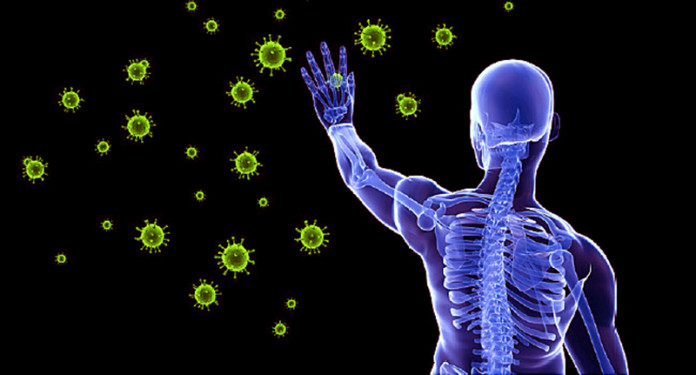


Your immune system is made up of special cells, tissues, and organs that work together to protect you from viruses. The immune system is also called the natural defense system. Inflammation of immune system occurs when your immune system releases cells to combat infection or treat an injury. Your immune system performs an important role in protecting you from serious infections. If your immune system is weakened it may not be able to fight off some infections. Strong immune system fight against bacteria, viruses, and other invaders. Your immune system “flags” quickly target the invading microorganisms and destroy them and protecting you from harm.
There are different inflammation of immune system, and even though direct causes are still a medical mystery and increased the risk factors.
Heredity is the most important factor of developing an immune system disorder for example, if one parent has an immune disease their children’s must risk for inheriting that same disorder.
Inflammation of immune system typically show themselves during childhood and teen years. Take Juvenile Idiopathic Arthritis, a type of rheumatoid arthritis, primarily affects those under the age of 18.
Medical research has also found that hormones increase the risk of developing certain immune illnesses.
Environmental factors such as air pollution or urbanization may increase disease risk. Environmental risk factors for immune mediated disease come from the dusty trades, mining, quarrying, tunneling and stonemasonry.
Genetic is also the most important factor risk of developing an immune disorder, your specific genetic make-up can also have an effect. Medical research suspect that your genes raising the risk of immune disorder.
Immune system disorder is when your immune system doesn’t work the way it should. You may:
Primary immune deficiency is the weak immune system by birth.
Too active immune system in a person increases the allergic problem.
Immune system that automatically turns against you called autoimmune problem.
Having disease that weakens and slow down your immune system is called acquired immune deficiency.
Primary immune deficiency diseases are rare, genetic disorders that impair the immune system. Without a functional immune response, people with PIDDs may be subject to chronic, debilitating infections, which can increase the risk of developing cancer. Some primary immune system can be fatal. Primary immune system may be diagnosed in infancy, childhood, or adulthood, depending on disease severity.
An allergic reaction occurs when a person’s immune system becomes overly sensitive to a typically harmless substance. Allergic reactions often cause rashes. The rash may vary in size and severity, depending on its cause. Poison ivy, fragrances, and medications are some common substances that can cause an allergic rash. A person can treat most allergic reaction rashes at home with over-the-counter (OTC) medications.
An autoimmune disease is a condition in which your immune system attacks your body. The immune system usually guards against bacteria and viruses. When it senses these foreign invaders, it sends out an army of fighter cells to attack them. Usually, the immune system can tell the difference between foreign cells and your own cells. In an autoimmune disease, the immune system mistakes part of your body, like your joints or skin, as foreign. It releases proteins called autoantibodies that attack healthy cells.
Having disease that weakens and slow down your immune system is called acquired immune deficiency. A generalized in the immune response to antigenic stimuli due to various conditions eg aging, AIDS, Alzheimer’s disease, amyotrophic lateral sclerosis, burns, chemotherapy, coeliac disease, corticosteroids, depression and mental stress, IBD, leprosy, NSAIDs, radiation, sarcoidosis, sepsis, hematologic and lymphoproliferative disease.
Hemorrhagic Gastroenteritis Virus In Child & Adults
Muscular And Joint Pain In Whole Body
Let’s Talk About The Causes, Symptoms And Different Types Of Liver Inflammation
Dengue Fever And The Guidelines About The Symptoms & Treatments Of Dengue